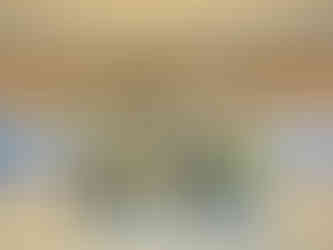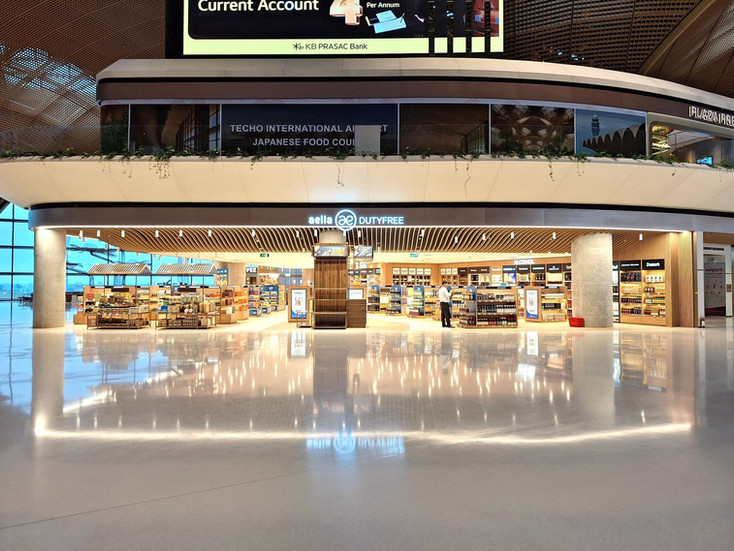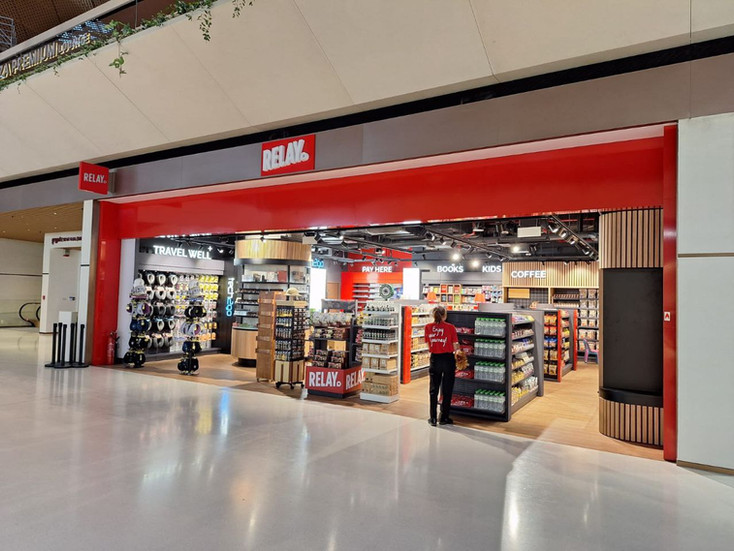Back to the Roots: The Inspiring Journey of Channara Bun, Architect and Project Manager in the heart of Phnom Penh
- Editorial team

- Oct 10, 2025
- 4 min read
Born in Cambodia, Channara has travelled a long way from France to his native country, driven by a deep desire to contribute to the development of his birthplace. An engineer and architect trained in Paris, he shares here his rich professional career and the challenges he has taken on in emblematic projects, while taking a personal look at the development of Phnom Penh and his life beyond work.

Channara, can you tell us about your personal and professional background and why you decided to return to Cambodia?
I was born here in Cambodia. When I was 11, my grandmother took me to France for personal reasons and to give me a chance to continue my studies under better conditions. So I did all my schooling there.
After the baccalauréat, I enrolled at the ESTP engineering school and the Paris-La Villette architecture school, gaining two diplomas. At the end of my final year at engineering school, I had to do a work placement abroad.
That's how a colleague told me about Archetype. I met Michel Cassagnes, now Managing Director for Cambodia, Laos and Vietnam, who immediately accepted me for a four-month placement in 2016. I then returned to France, where I worked for two years in a design office as a pilot and project manager on residential projects.
However, the desire to return to my roots and contribute to the development of Cambodia pushed me to come back.
I contacted Michel again and returned to Cambodia in 2018.
Can you describe your job and the projects you've been involved in?
I've been a Project Manager at Archetype for over 7 years now. I've had the chance to work on a wide variety of projects: hotels, museums, various commercial spaces and factories.
In 2019, I took part in the preconstruction phase of the Raffles Grand Hotel d'Angkor in Siem Reap, before overseeing the complete renovation of the Raffles Hotel Le Royal in Phnom Penh. These two projects, emblematic of Cambodia's hotel heritage, represented an exciting challenge: modernising historic establishments while preserving their colonial charm and architectural identity.
Despite the Covid crisis, which temporarily slowed down the works, they were successfully completed.
I then got involved in the Big Tree Community Mall, a concept of a shopping centre on a human scale, designed as a convivial place to live.
About a year and a half after the start of the pandemic, I was put in charge of the Novotel Holiday Palace in Sihanoukville, a major hotel project that marked the gradual recovery of the sector. Shortly afterwards, I joined the adventure of the Mekong Factory, located in the PPSEZ industrial zone - a project developed entirely by Archetype, from design to completion, which clearly illustrates our ability to support the client at every stage of the process.
More recently, I had the privilege of managing the Duty-Free Lagardère Travel Retail project at the new Phnom Penh international airport, which gave me the chance to explore a whole new world!
Can you tell us more?
On the surface, a retail project may seem smaller than a hotel, but it requires greater intensity and precision. We managed 17 different shops, which equates to 17 simultaneous mini-projects, in coordination with two main contractors. I had the chance to follow the project from the very beginning - design, choice of contractors, execution, right through to final handover.
"The design was framed by international guidelines, but these had to be constantly adapted to local constraints and the airport environment. Each boutique required tailor-made adjustments.
In an airport, deadlines are non-negotiable: the opening date is fixed, whatever happens. Despite a delay in the design, we managed to reduce the turnaround time without compromising quality.
With experience, I've learnt that the success of a project depends above all on supply management: a perfect schedule is worth nothing if the materials don't arrive on time.
What are you most proud of in this project?
My greatest pride lies in my strong involvement in the design, as well as in the exchanges I've had with the clients. Used to working in France, they weren't very familiar with the local market or the materials available. I was able to offer them cost-effective and high-quality alternatives.
For example, to meet smoke extraction requirements, I suggested designing perforated ceilings to achieve the minimum opening of 25% imposed by the regulations. Based on this idea, the client developed a random perforation pattern, resulting in a design that was both artistic and functional.
There was always a constructive dialogue between the team, the clients and myself, to find appropriate solutions.
What do you think of the new Phnom Penh airport?
It's a very beautiful airport, both grand and majestic, remarkable for its elegant architecture. As soon as you arrive, you're impressed by the skylights coming from the roof and the vegetation all around.
Tell us a little about your private life. What do you do outside work?
I do a bit of sport and like to go out for a drink now and then with friends. I'm also the father of a two-and-a-half year old boy, with whom I make the most of the weekends. What I like about Cambodia is the freedom to get on the road easily: we often go to Kampot or Sihanoukville for a few days of relaxation. Apart from that, I lead a fairly simple life.
What was your first impression on returning to Phnom Penh?
The city has changed a lot. When I left, I was very young and there were no tower blocks. When I came back, they were springing up like mushrooms everywhere. I always had this idea in my head that Phnom Penh was a city of small, low-rise houses, not modern like other capitals.
But as I've got older, I've realised that this modernity isn't necessarily progress. When you grow up, you think big, but when you come back, everything seems smaller, including my house.
Finally, what do you like most and least about life in Phnom Penh?
What I like most is the freedom: being able to go out easily, seeing friends, and the trust my employer gives me in managing my projects.
What I like least is probably the lack of cultural diversity in certain activities and events. Weekends out in the provinces are pleasant, but sometimes a bit repetitive.















Comments